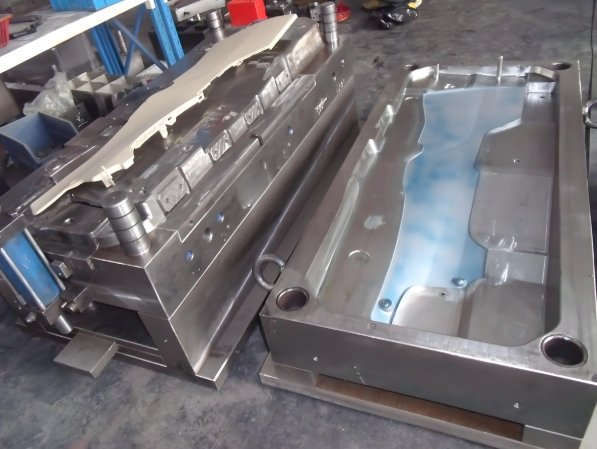
Autonomous vehicles (AVs) are reshaping transportation. They need advanced components for safety and performance. Automotive Injection Molds play a crucial role in creating these parts. Expert Mold Makers ensure precision and efficiency. This article explores their role in AV development.
Why Autonomous Vehicles Need Injection Molds
1. Precision for Complex Components
Autonomous vehicles require intricate parts. Sensors, cameras, and processors must fit perfectly. Automotive Injection Molds create components with exact dimensions. This ensures proper assembly and function.
2. Lightweight Designs
Reducing vehicle weight improves efficiency. Molds help create lightweight plastic parts. These parts replace heavier metal components.
3. Durability and Safety
AVs must withstand harsh conditions. Molded plastic parts resist heat, cold, and impact. Mold Makers use advanced materials to meet these demands.
Injection Molds for Autonomous Vehicle Components
1. Sensor Housings
Sensors are essential for AV navigation. Molded housings protect sensors from damage. They ensure sensors work reliably.
2. Camera Mounts
Cameras provide critical data for AV systems. Injection molds create stable and precise mounts. This ensures clear and accurate imaging.
3. Interior Panels
AV interiors need ergonomic designs. Molds produce sleek, functional panels. These panels integrate seamlessly with AV technologies.
4. Battery Enclosures
Electric AVs use large battery packs. Molded enclosures shield batteries from external forces. They also ensure safe and efficient energy use.
The Role of Mold Makers in AV Development
1. Design Expertise
Mold Makers design molds for high-tech components. They ensure molds meet precise requirements.
2. Material Selection
Choosing the right material is critical. Mold Makers select durable and lightweight plastics. These materials enhance AV performance.
3. Advanced Manufacturing Techniques
Modern Mold Makers use innovative methods. CNC machining, 3D printing, and automation improve mold quality.
4. Prototyping and Testing
Mold Makers create prototypes to test designs. This identifies issues early. It ensures flawless final production.
Benefits of Injection Molds in AV Manufacturing
1. Cost Efficiency
Injection molding is cost-effective for large-scale production. It reduces material waste.
2. Speed
Molded parts are produced quickly. This speeds up AV manufacturing timelines.
3. Customization
Molds allow for custom designs. AV manufacturers can create unique parts for specific models.
4. Consistency
Injection molds ensure consistent quality. Every part meets the same high standards.
Challenges in AV Injection Molding
1. Complex Designs
AV parts are often intricate. Designing molds for these parts is challenging.
2. High Precision Requirements
Even small errors can cause issues. Mold-making demands extreme precision.
3. Material Limitations
Some materials may not meet AV standards. Finding the right material takes time and expertise.
Innovations in Injection Molding for AVs
1. Smart Molding Technologies
Sensors monitor mold performance in real-time. This ensures high-quality parts.
2. Eco-Friendly Materials
Biodegradable plastics reduce environmental impact. AV manufacturers value sustainable practices.
3. Hybrid Material Integration
Molds now combine different materials. This improves part functionality and durability.
4. Digital Twin Technology
Digital models simulate mold performance. This speeds up design and testing.
Applications of Molded Parts in AVs
1. Navigation Systems
Parts for GPS and LiDAR systems are molded precisely. They ensure accurate navigation.
2. Safety Features
Airbag housings and seatbelt components are molded for safety. These parts meet strict standards.
3. Connectivity Modules
AVs rely on communication systems. Molded parts protect and support these modules.
4. Control Panels
Injection molds create durable and stylish control panels. These panels integrate advanced technologies.
Future of Injection Molds in AV Manufacturing
1. Advanced Materials
Research will develop stronger, lighter plastics. These materials will enhance AV performance.
2. Fully Automated Production
Automation will dominate mold manufacturing. This will reduce costs and production times.
3. Integration with AI
AI will optimize mold design and performance. It will identify issues before they occur.
4. Increased Customization
Molds will support more customization. This will allow for unique and specialized AV designs.
Automotive Injection Molds are essential for autonomous vehicles. They create precise, durable, and lightweight parts. Skilled Mold Makers ensure these molds meet the highest standards. Innovations in materials and technology are driving progress. Despite challenges, the future of injection molding in AVs is promising. It is transforming the automotive industry and paving the way for sustainable, efficient transportation.
